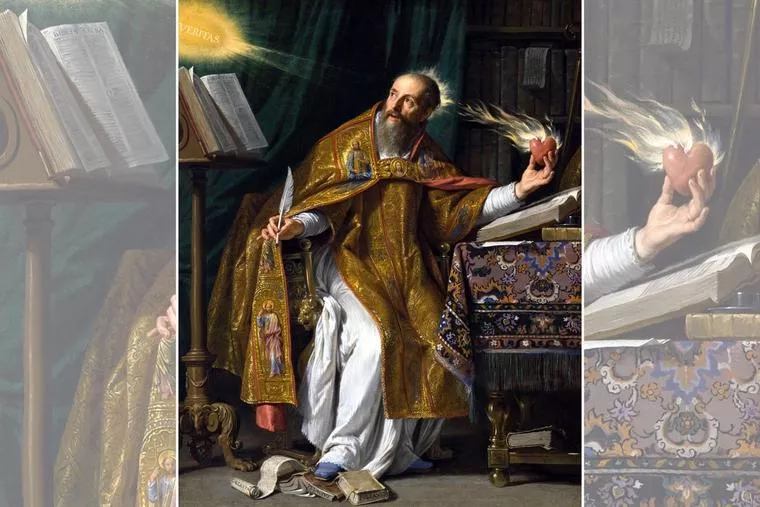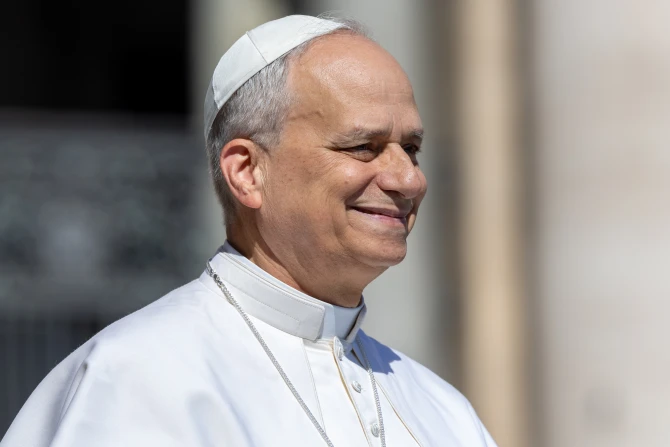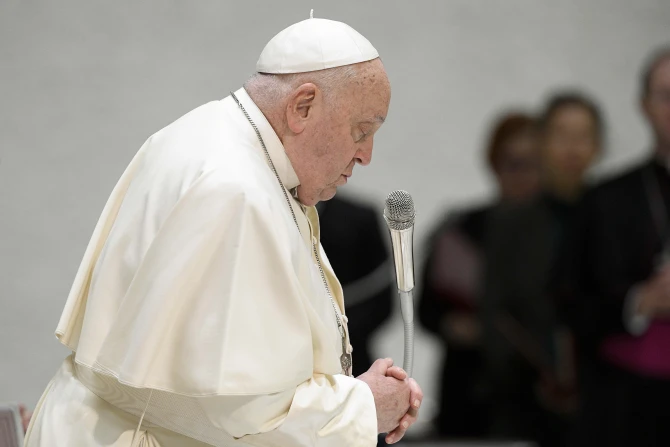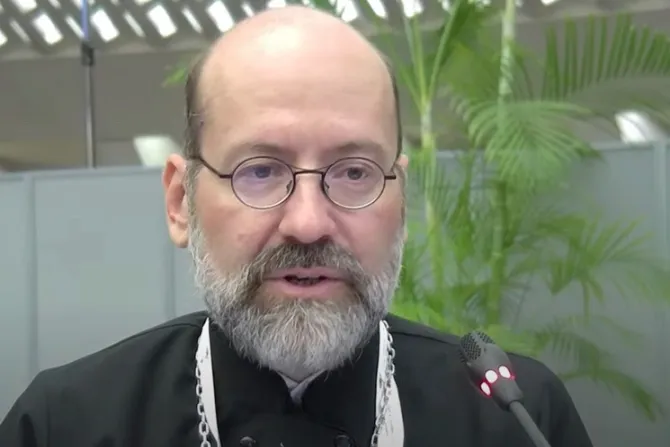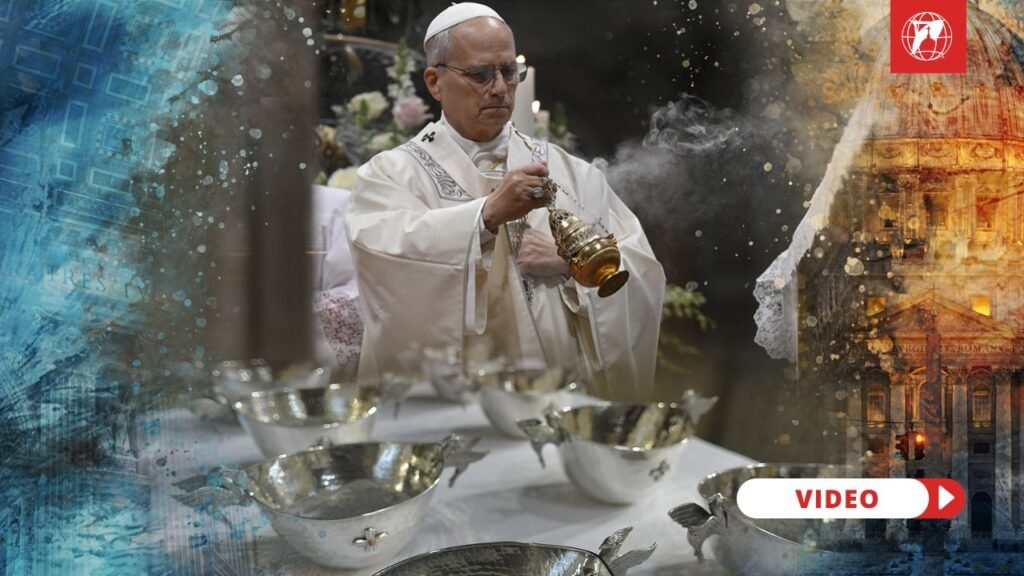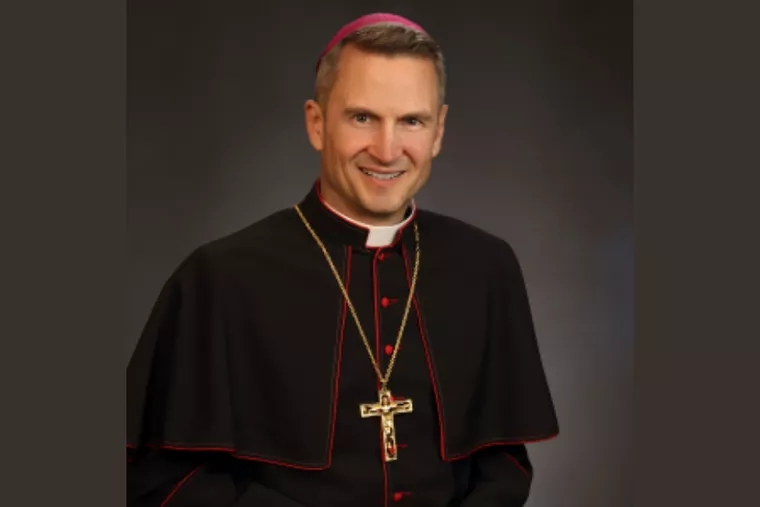In this Jubilee Year of Hope, the witness of Pope Leo XIV’s patron saint reminds us that true freedom comes through confession and conversion.
SIGN UP FOR OUR NEWSLETTER HERE
We are fractured sinners in need of a Savior. Prone to wander and slack in virtue, we may feel like the frailty of our flesh fails to match the zeal in our hearts. We are constantly invited to be made whole through the graces of confession.
If you’re looking for a companion on the journey to sanctity or need a nudge to the kneeler, consider inviting St. Augustine — the personal patron of Pope Leo XIV — whose feast day is Aug. 28.
In his Urbi and Orbi address after his election, the Pope said: “I am an Augustinian, a son of St. Augustine.”
At a 2024 presentation, then-Cardinal Robert Prevost also introduced himself in reference to his patron:
I’m an Augustinian. … I have personally a great debt to the Order of Saint Augustine, to St. Augustine himself, [his] philosophy, theology, thought, humanity; that great love of Augustine for God’s word, that infinite searching for truth, for himself, and for God in himself; and for everything that Augustine taught in terms of communion and community that marked my life.
Augustine’s life was one of grave sin, profound encounter, and authentic conversion — a beautiful witness during this Jubilee Year of Hope and under our Augustinian pope. Upon reflecting, may we respond to the universal call to conversion through an authentic encounter with Christ in the sacrament of penance.
Freed From Chains
From a young age, St. Augustine fell slave to his passions. In seeking pleasures presented by the world, he felt imprisoned by his body. He admitted in his classic Confessions, “I had become deafened by the clanking chain of my mortal condition, the penalty of my pride.” After years of grappling with guilt, an encounter with grace pierced his perception of himself, of God, and of the world, compelling him to take the first step out of sin toward the light.
How often do we find ourselves, like Augustine, deafened by the clanking of our chains? Our mortal condition, like his, is prone to weakness and failure. “The corruptible body burdens the soul” (Wisdom 9:15), which is precisely why we need the sacrament of confession. This sacrament “offers a new possibility to convert and to recover the grace of justification” (Catechism of the Catholic Church, 1446), so that we, like Augustine, may run freely into the arms of Christ.
Astounded by Glory
Receiving the sacrament of reconciliation makes us vulnerable, as it demands that we confront our childish behaviors, our damaging methods of coping, and our selfish motives. As we struggle with our own shame, Augustine’s experience gives us hope: “In my deepest wound I saw Your glory, and it astounded me” (Confessions).
This is the summit of this sacrament. Where we see a screen and the shadowy outline of a priest, the Lord sees the first courageous step of our conversion. As we kneel and expose our deepest wounds, the lumen gloriae — “light of glory” — pierces the depths of our weakness, inviting us to healing and wholeness.
It is here, in this sacrament of conversion, that we are fully embraced by our God. Like St. Augustine, we are gently invited to recognize our shortcomings and allow the Lord to restore us to his glory.
“Listen to his offer of love,” Pope Leo XIV said in his inaugural address, “and become his one family: In the one Christ, we are one.”
Metanoia
In the Catholic Church, we often use the word “conversion” to imply a change of religious affiliation (one “converts” to Catholicism). But as the baptized faithful, we are all called to continual conversion; that is, a constant turning away from sin and reorienting our hearts and minds to Christ; in Greek, metanoia. We live this call to conversion or metanoia through the sacrament of reconciliation.
As Augustine discovers throughout his Confessions, we, too, will experience personal conversion as a process. God knew that we needed more than one shot, so we are invited to receive new mercy every morning, and we are welcomed to the sacrament of confession as often as needed.
Metanoia implies profound intimacy with the Person of Jesus Christ. It encourages a radical openness to the Holy Spirit and a deep humility requiring our constant reorientation to Our Lord.
“St. Augustine too had a restless youth,” explained Pope Leo, “but he did not settle for less, did not silence the cry of his heart. He sought the truth that does not disappoint, and the beauty that does not fade.”
In our guilt and shame, the sacrament of penance can seem like a mountain too high to climb. With our modern mayhem and full schedules, it may feel like the last thing on our list. But striving for the Kingdom of heaven, especially in this Jubilee Year of Hope, let us look toward St. Augustine and be moved by his courage, humility and receptivity to mercy.
“Christ instituted the Sacrament of Penance for all sinful members of his Church” — that is, all of us (Catechism, 1446). May we follow the witness of Augustine as we pursue healing and wholeness, go readily to this font of endless mercy, presenting our hearts and being transformed by grace — keeping our eyes on Christ and striving for heaven.
This article was originally published by NCRegister.

